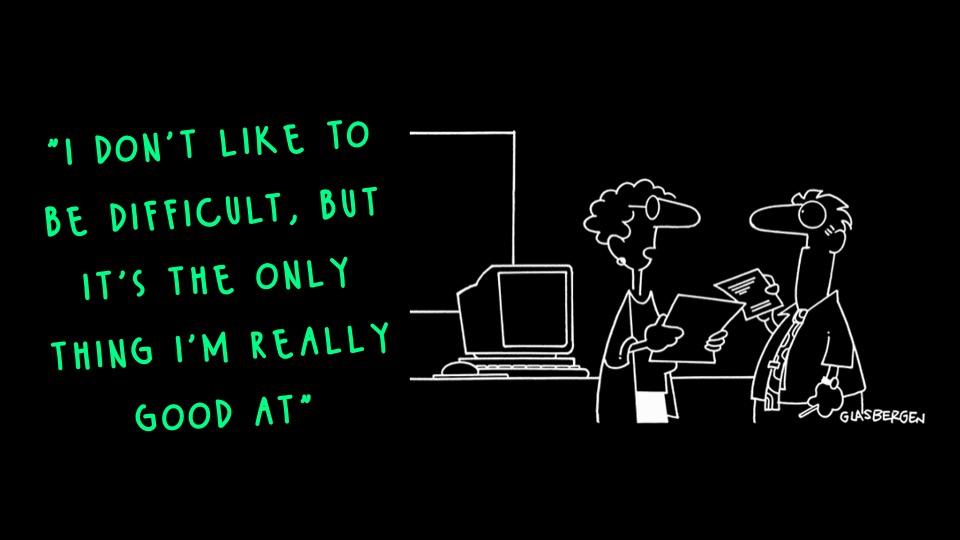
dr rebel: people find me difficult, but i just want to prevent the team from making mistakes. what can i do?
from research by sarah bond and gillian shapiro, we learn that the number one reason that drains our resilience at work is ‘managing difficult people or office politics at work. not a real surprise, as more and more, we associate “i don’t agree with you” with someone unkind, angry or even rude.
but what intrigues me the most is the wording ‘difficult people’. what does that mean? are these the people who keep asking questions to get to the root of the problem instead of jumping to conclusions? the ones that bring surprising solutions to the table that may seem ridiculous at first? the ones that dare to speak up when everyone else remains silent?
they are also the ones who get the ball rolling and get things done. perhaps the real solution lies in changing what we perceive as “difficult people” and reframing it into something more positive.
however, in the meantime, rebels struggle and have to deal with it. this flowchart can help. follow the steps to find out the best tactic.

step 1: check your assumption. talk to your teammates and ask if they see you as difficult. often, they are secretly happy that someone else dares to speak up. if that’s the case, let go and breathe. learn to take the (perceived) resistance not too personally, and embrace your crucial role in the team. And keep rebelling!
step 2: understand why. if they do find you difficult, find out why. i list three reasons i have encountered a lot, plus a tactic you can use in each case.
- “you slow us down”: you want to get to the bottom of things, so you start digging and ask many questions. people get annoyed because they want to move on. show examples from the past where you prevented a failure because you figured out the root cause. it may also be worth emphasizing all the extra work the team had to do from earlier examples where things went wrong.
- “you harm the harmony in the team”: show that you are committed to the team and that you always act for the team’s sake. use examples where you have gone the extra mile and show you are one of them. ask them to provide examples where you’ve put your ego first (they probably cannot give any!).
- “you are a know-it-all”: learn to be more effective in communicating your concerns and ideas. criticize ideas, not people. understand that words such as ‘actually’, ‘obviously’, ‘of course’, and ‘honestly’ are signs of statements that people perceive as that you know better. if someone says something you believe is wrong, don’t correct them. instead, ask a question and be open to their answer. they may have a point that you have missed. and admit when you are wrong.
step 3: evaluate the situation. sit back and reflect on how things worked out. if the situation has improved, well done, and you rock! reflect on your approach, learn from it and use it again next time.
step 4: determine your tactic for next time. if the situation has remained the same, let it go for now. do an inner check on your energy level. is your fire still burning? then keep going for it and try again next time. are things getting too much under your skin? then pick your battles. next time, decide whether it’s worth speaking up, and if so, go for it!

do you have a burning question for dr rebel?